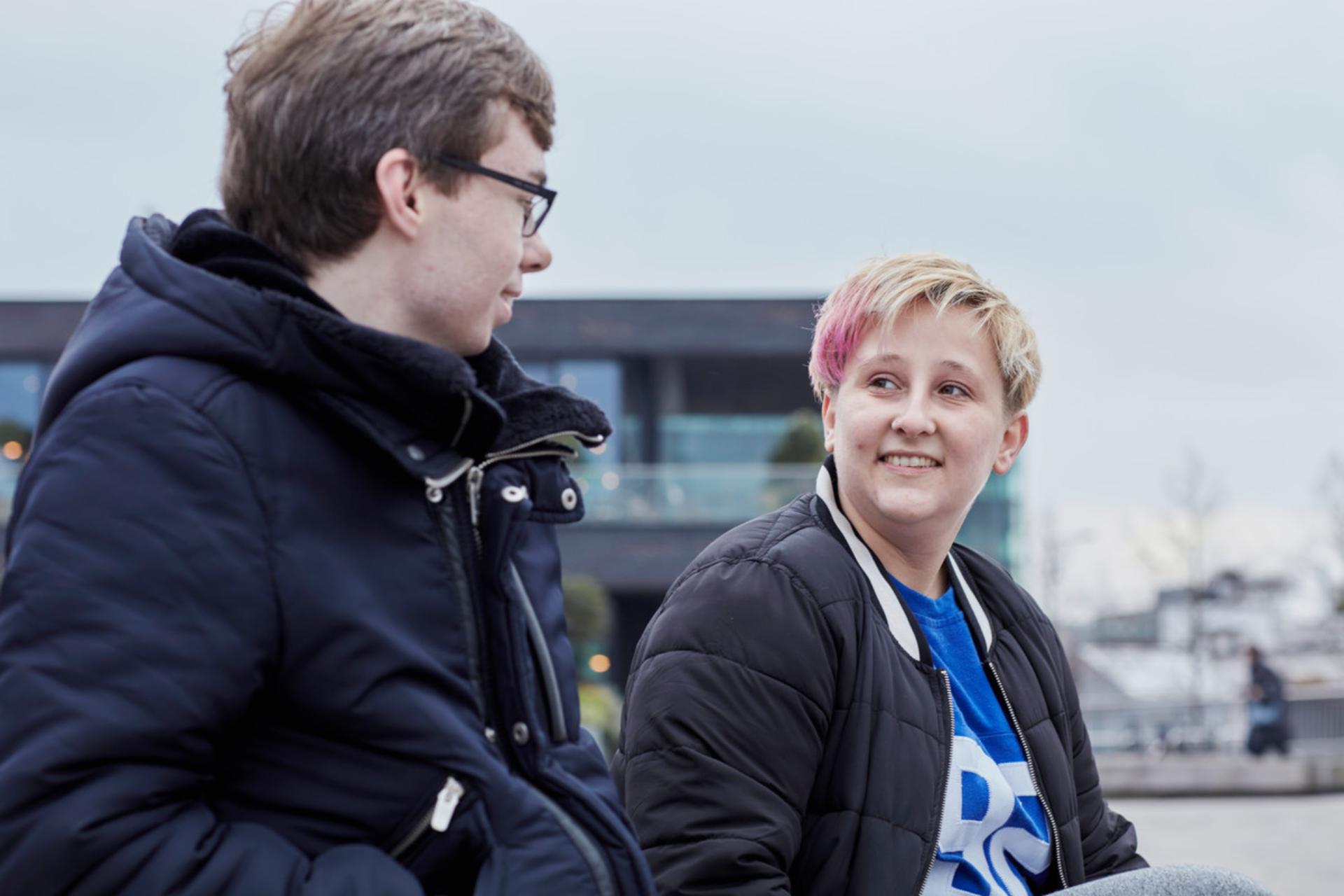IPPF EN considers people with disabilities a highly vulnerable group needing special attention when it comes to sexual and reproductive health and rights. Member Associations have increasingly been called on to address these unique sexual health needs, so IPPF EN has developed a series of initiatives to increase the network’s capacity to protect the sexual rights of people with disabilities, including a regional capacity-building initiative and an EU-funded project involving 13 European countries. The EU-funded ‘Keep me Safe’ project empowers young people with learning disabilities to protect themselves from violence and sexual abuse in at least seven European countries using the expertise of five IPPF EN Member Associations.
Peter and Sophia are two young people with learning disabilities living in different sections of the same institution. Peter is 25 and has been staying at the institution for three weeks, and not much is known about him. Previously, he was in another institution, but there they could not give him the support and guidance he needed. Sophia is a vulnerable girl of 15 years old. She has been living in the institution for over a year. She’s reached puberty and is very much interested in everything to do with boys and sex. They were discovered having sex in the bushes by a visitor. Sophia was yelling “No, stop. I don’t want to,” but Peter wouldn’t stop.
In recent years, several IPPF EN Member Associations have been contacted by institutions, organizations and individuals asking for support in responding to incidents of inappropriate sexual behaviour by people with learning disabilities or cases of sexual violence and abuse that young people with disabilities are exposed to. Not all the Member Associations were able to respond to these requests for support. Member Associations are experts when it comes to providing sexuality education to young people, but talking to young people with learning disabilities about sex and sexuality requires a different approach that is tailored to this group’s unique needs.
However, some IPPF EN Member Associations can draw on years of experience to provide assistance on sexuality education for young people with disabilities and/or support institutions to respond to cases of sexual violence and abuse. For instance, the UK Family Planning Association (FPA) is running a very successful programme and has won several awards for its innovative, interactive educational tool ‘All about us’ (http://www.fpa.org.uk/product/all-about-us-dvd-rom). The success of this work inspired IPPF EN to start an initiative that would enable UK FPA Northern Ireland to coach other Member Associations in this field. In 2009, Georgie McCormick and Mark Breslin from UK FPA Northern Ireland trained representatives from Latvia, Denmark, the Republic of Macedonia and Israel, all of whom returned home and successfully set up programmes for young people with learning disabilities with support from UK FPA.
A review of available expertise among IPPF EN Member Associations revealed that UK FPA is not the only one with years of relevant experience, as several Member Associations have eagerly responded to the pressing needs of young people with learning disabilities in their countries. With funding from the European Commission Daphne III programme, IPPF EN has been able to expand its efforts in building the network’s capacity to support young people with learning disabilities in the EU countries most in need. With this EC-funded ‘Keep me Safe’ project, we are empowering young people with learning disabilities to protect themselves from violence and sexual abuse in Spain, Cyprus, Bulgaria, Romania, Latvia, Macedonia and Denmark. The Member Associations from these countries are currently receiving training, mentoring and support from their colleagues in Belgium, Germany, Ireland, the Netherlands and the UK.
All young people have sexual rights
Returning to the incident described above: how can such incidents be prevented?
Young people with learning disabilities are rarely considered to be sexual beings with sexual wishes and a need for intimacy, sexual affection and love like any other young person. Moreover, family members and carers often feel deeply uncomfortable talking about these subjects with young people, and even more so with young people with learning disabilities.
The major taboo around sex and a lack of sexuality education and information for young people with learning disabilities make them extremely vulnerable to violence and sexual abuse. If no one ever talks openly to them about sex and sexuality in a positive way, about their and others’ sexual rights and responsibilities, about their and other people’s boundaries and about social norms, it may result in inappropriate sexual behaviour, violence and abuse.
On the one hand, society wishes to protect children, young people and adults with learning disabilities; however, on the other hand, it tends to see them as asexual, which exposes them to much higher risks of abuse and suffering.
Young people with learning disabilities are sexual beings and have a right to sexuality information and education tailored to their specific needs. Parents, carers and policymakers have the responsibility to uphold this right, and Member Associations are taking up their responsibility to support them in this task. Providing support to institutions, day care centres and families to respond to these incidents is often a first step in raising awareness of the need to prevent these incidents from happening in the future. Even more important, this is a first step towards improving the quality of their sexual lives by recognizing that young people with learning disabilities are sexual beings with sexual rights that are to be respected and fulfilled just like anyone else’s.
By Marieka Vandewiele, Senior Programme Adviser, IPPF European Network
when
Subject
Disability








